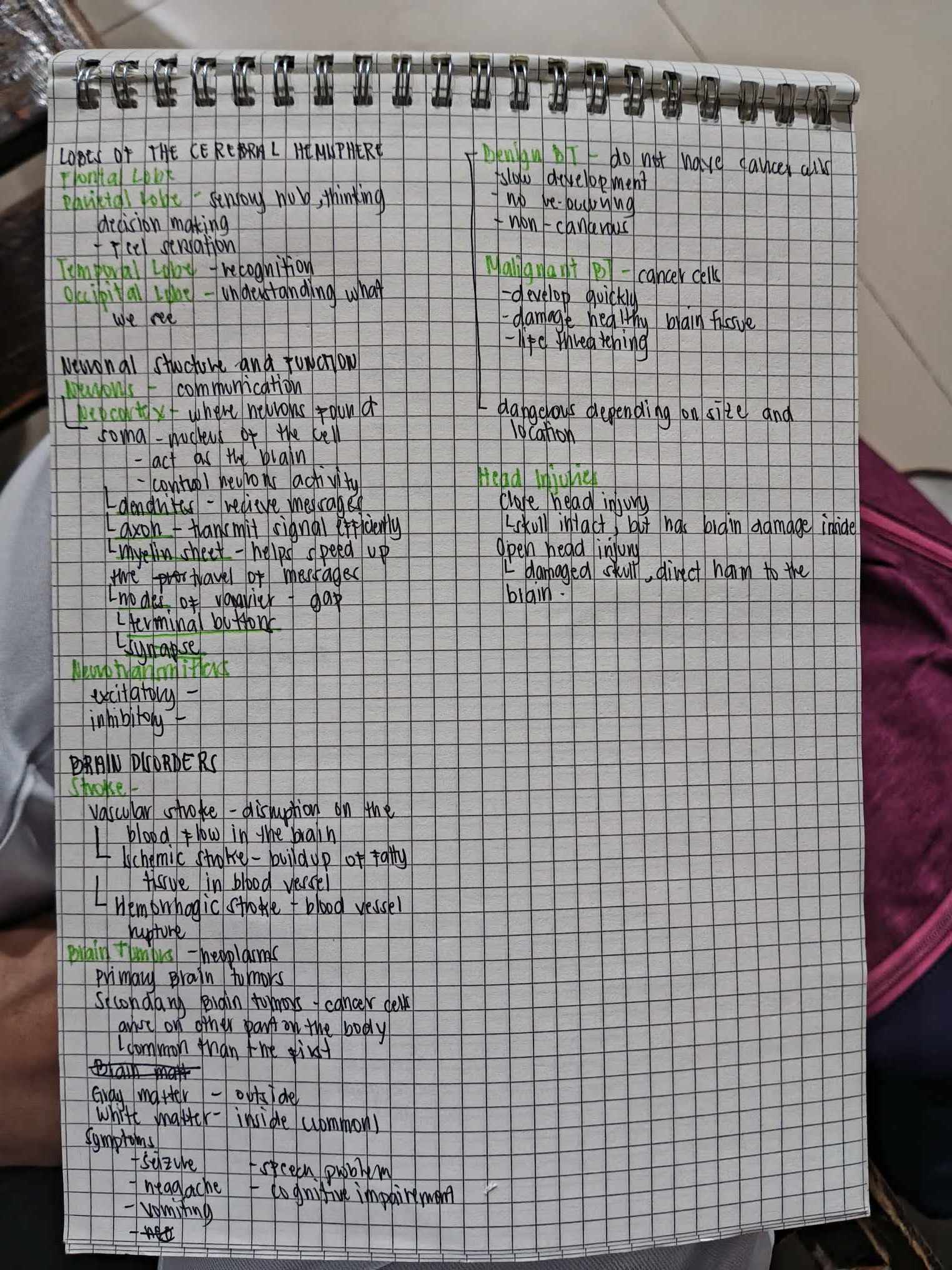Understanding Brain Lobes, Functions, and Disorders
Notes on Brain Function and Disorders

Lobes of the Cerebral Hemisphere
Frontal Lobe
- Function: Involved in reasoning, planning, problem-solving, and emotional control.
- Thoughts: This lobe plays a critical role in higher cognitive functions and personality. Damage here can alter decision-making and behavior.
Parietal Lobe
- Function: Handles sensory information and spatial awareness.
- Additional Info: Critical for integrating sensory experiences and understanding space, which can affect movement coordination.
Temporal Lobe
- Function: Responsible for auditory perception and memory recognition.
- Insight: This lobe is essential for understanding language and storing memories, making it vital for learning.
Occipital Lobe
- Function: Responsible for visual processing, helping us understand what we see.
- Note: Damage to this area can result in visual deficits, impacting how we interpret visual stimuli.
Neural Structures and Functions
Neurons
- Definition: The basic units of the brain and nervous system, responsible for carrying signals.
- Components:
- Dendrites: Receive signals from other neurons.
- Axon: Transmits signals to other neurons or muscles.
Neurotransmitters
- Functions: Chemicals that facilitate communication between neurons.
- Excitatory: Promote the transmission of signals.
- Inhibitory: Suppress signal transmission.
Brain Disorders
Stroke
- Definition: Occurs due to a disruption of blood flow in the brain.
- Types:
- Ischemic Stroke: Blockage of blood vessels due to fatty deposits.
- Hemorrhagic Stroke: Bleeding due to a ruptured vessel.
- Types:
- Implications: Stroke can lead to severe cognitive and physical impairments.
Brain Tumors
- Classification:
- Primary brain tumors: Originate in the brain tissue.
- Secondary brain tumors: Result from cancer cells spreading from other parts of the body.
- Common Symptoms: May include headaches, nausea, and cognitive issues.
| Type of Brain Tumor | Characteristics |
|---|---|
| Primary Brain Tumors | Originate within the brain |
| Secondary Tumors | Spread from other body parts |
Key Symptoms of Brain Disorders
- Common Symptoms:
- Headaches: Can be a sign of various brain disorders.
- Nausea: Often accompanies neurological issues.
- Cognitive Problems: Issues with memory and thinking processes.
This summary highlights the functions of different brain regions, the structure of neurons, the role of neurotransmitters, and the characteristics and symptoms of brain disorders. Understanding these elements is crucial for recognizing the complexities of brain health and the impact of various conditions.
Reference:
www.ninds.nih.gov
Brain Basics: Know Your Brain
www.mayoclinic.org
How your brain works - Mayo Clinic
qbi.uq.edu.au
Lobes of the brain